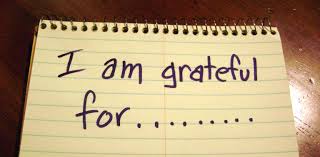By Dr. Jill Langer
What if there were something quick and simple you could do that would grant you the following benefits:
- Increase positive emotions including happiness, joy, and optimism
- Make you feel more alert, alive, and awake
- Allow you to feel less lonely or isolated
- Improve your immune system functioning
- Lower your blood pressure
- Improve your tolerance for pain
- Allow you to be more helpful, generous, and compassionate
Would you do it? Every day? For just 5 minutes?
I have great news for you: There is! And it gets even better: This is not an advertisement. This will not cost you a dime!
We now have research demonstrating highly impressive results for individuals who practice gratitude consistently. For example, participants in one study who wrote down five things they were grateful for during the week for a period of 10 weeks: 1) Felt better about their lives, 2) Were more optimistic about the future, 3) Exercised more and 4) Were 25% happier than those who did not practice gratitude. Another study found that participants who practiced gratitude only once per week reported significant increases in their happiness levels.
Two Ways to Practice Gratitude:
Weekly:
- Write down one thing you were grateful for in the past week (such as your health, a conversation with a friend, the color of the sky, etc.)
- Tell the story surrounding this gratitude to another.
Daily:
Use the G.L.A.D. technique:
Journal or write these on an index card:
G – Find one gratitude you’re thankful for today
L – Find one new thing you learned today
A – Find one accomplishment (even if small) you did today
D – Find one thing of delight that touched you today
Tips for Practicing Gratitude:
Don’t worry if it takes time to get used to and better at writing down and talking about what you are grateful for. Like all things, it gets better with practice!
Try not to criticize the things you think of or write down. There is no “wrong way” to practice gratitude. If you are feeling sad, depressed, overwhelmed or have recently suffered a loss, it can be very difficult to think of things for which you feel grateful. Just do the best you can and be pleased with your efforts.
Don’t give up: Try practicing gratitude every day or every week for at least two months and then notice how you feel. I predict you will be pleasantly surprised! And grateful.
References:
Counting Blessings Versus Burdens: An Experimental Investigation of Gratitude and Subjective Well-being in Daily Life. Emmons & McCullogh, Journal of Personality and Social Psychology, 2003, Vol 84, No. 2, 77-389.
G.L.A.D. Technique by Donald Altman, M.A., LPC


